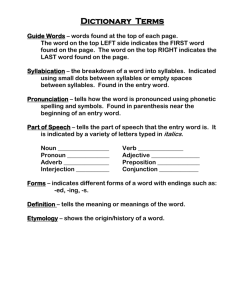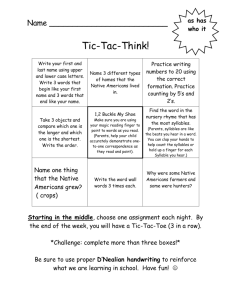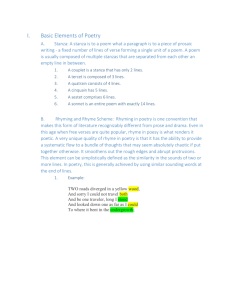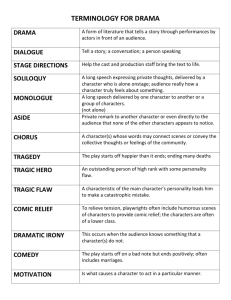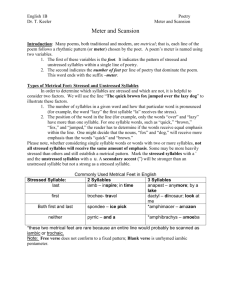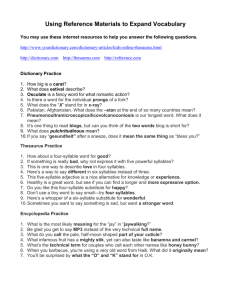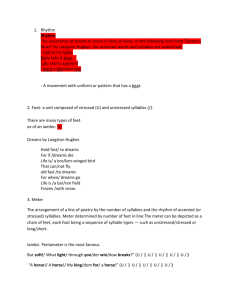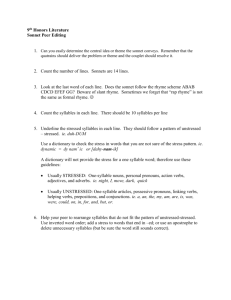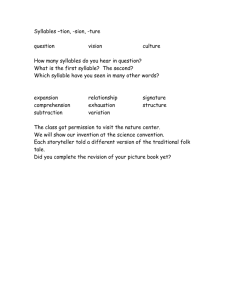HANDOUT #7 Name_______________________________ Per.
advertisement
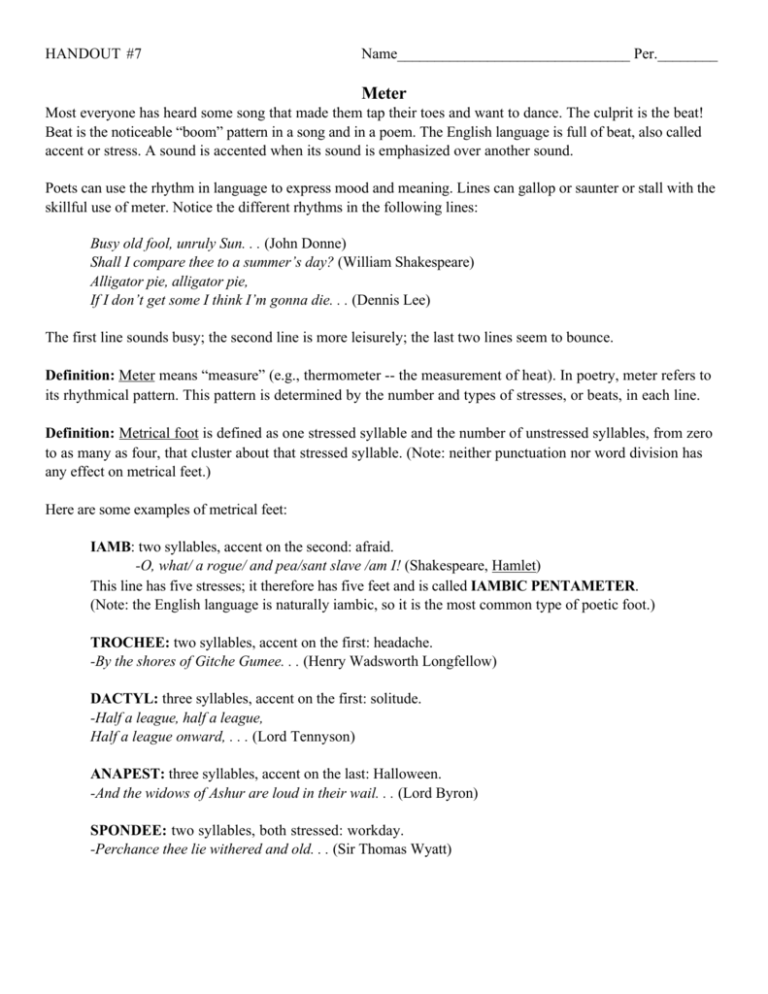
HANDOUT #7 Name_______________________________ Per.________ Meter Most everyone has heard some song that made them tap their toes and want to dance. The culprit is the beat! Beat is the noticeable “boom” pattern in a song and in a poem. The English language is full of beat, also called accent or stress. A sound is accented when its sound is emphasized over another sound. Poets can use the rhythm in language to express mood and meaning. Lines can gallop or saunter or stall with the skillful use of meter. Notice the different rhythms in the following lines: Busy old fool, unruly Sun. . . (John Donne) Shall I compare thee to a summer’s day? (William Shakespeare) Alligator pie, alligator pie, If I don’t get some I think I’m gonna die. . . (Dennis Lee) The first line sounds busy; the second line is more leisurely; the last two lines seem to bounce. Definition: Meter means “measure” (e.g., thermometer -- the measurement of heat). In poetry, meter refers to its rhythmical pattern. This pattern is determined by the number and types of stresses, or beats, in each line. Definition: Metrical foot is defined as one stressed syllable and the number of unstressed syllables, from zero to as many as four, that cluster about that stressed syllable. (Note: neither punctuation nor word division has any effect on metrical feet.) Here are some examples of metrical feet: IAMB: two syllables, accent on the second: afraid. -O, what/ a rogue/ and pea/sant slave /am I! (Shakespeare, Hamlet) This line has five stresses; it therefore has five feet and is called IAMBIC PENTAMETER. (Note: the English language is naturally iambic, so it is the most common type of poetic foot.) TROCHEE: two syllables, accent on the first: headache. -By the shores of Gitche Gumee. . . (Henry Wadsworth Longfellow) DACTYL: three syllables, accent on the first: solitude. -Half a league, half a league, Half a league onward, . . . (Lord Tennyson) ANAPEST: three syllables, accent on the last: Halloween. -And the widows of Ashur are loud in their wail. . . (Lord Byron) SPONDEE: two syllables, both stressed: workday. -Perchance thee lie withered and old. . . (Sir Thomas Wyatt) ASSIGNMENT: Scan (mark the strongly stressed and weakly stressed syllables) the following poem. “Richard Cory” by Edwin Arlington Robinson Whenever Richard Cory went down town, We people on the pavement looked at him: He was a gentleman from sole to crown, Clean favored, and imperially slim. And he was always quietly arrayed, And he was always human when he talked; But he still fluttered pulses when he said, “Good-morning,” and he glittered when he walked. And he was rich -- yes, richer than a king -And he admirably schooled in every grace: In fine, we thought that he was everything To make us wish that we were in his place. So on we worked, and waited for the light, And went without the meat, and cursed the bread. And Richard Cory, one calm summer night, Went home and put a bullet through his head. 1. What kind of metered foot appears most frequently in this poem? 2. What are the number of feet that occur in most lines? __________ 3. What kind of mood does the meter create? 4. How does this meter contribute to the surprise ending?

